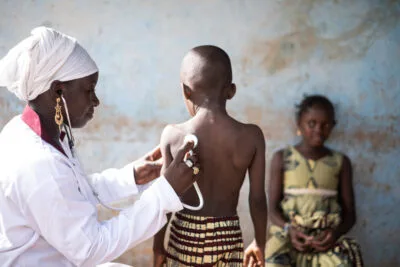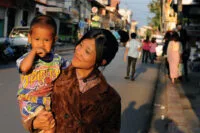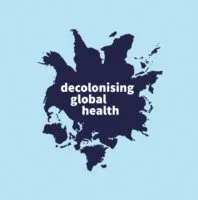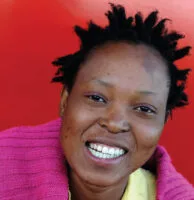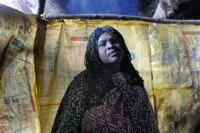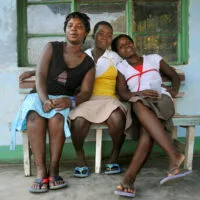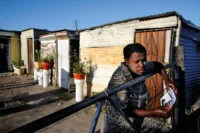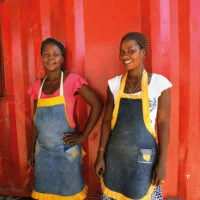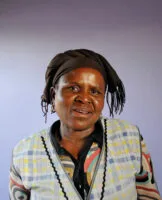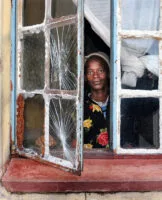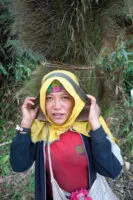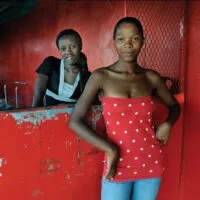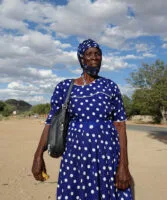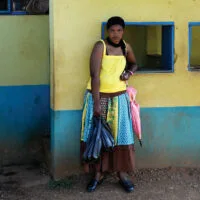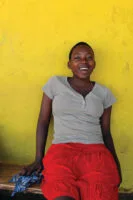Important notice
Please note that the images, figures, and tables for this Perspective have not been added yet. We are actively working to digitise and include these materials from our past magazines.
Main content
Interview with William Allen
Muona, Malawi, November 1st, 2015. Exactly 27 years ago, Mr William Allan, Principal Hospital Administrator at Trinity Hospital, signed up for the task. Through Skype and a telephone call, he told me that partnership is of great significance for the health sector in Malawi. William has a clear view and message on partnership in low-resource societies.
William, what is your background?
I have worked at Trinity Hospital since November 1988. One and a half years later, my wife joined me as a nurse-midwife. We have three children. I was born at the same Trinity Hospital in 1965, and our home is just about 300 metres away. After my secondary school education, the Congregation of the Sisters of Divine Providence invited me to work in the hospital’s administration department. They trained me on the job and later supported me for my post-graduate and Master’s degree in Health Management, which I did in 1996-97 at the University of Birmingham in England.
How would you define Public Private Partnership for us who don’t know?
Public private partnership is an arrangement where the private or public sector or both fill gaps in projects that would otherwise be implemented by a single party. In our case, it is about the participation of private and public entities in the delivery of services that we, as a church related health facility, provide.
What kind of partners does Trinity Hospital have, in a nutshell?
Our hospital is a member of the Christian Health Association of Malawi (CHAM), an umbrella organisation that supports the interests of all church related health facilities in Malawi. CHAM is an important partner of the Ministry of Health. It has 19 member hospitals, along with an even larger number of church-owned health centres. Together they provide about 40% of all health services in Malawi. Trinity Hospital works in partnership with the Nsanje District Health Office and a number of NGOs, some of which have their headquarters outside Malawi.
What is the role of Trinity Hospital?
Our hospital is situated in the Lower Shire Valley, in Nsanje district, the southernmost district of Malawi. It is a 200-bed mission hospital, founded in 1960. It serves approximately 150,000 people. Most families earn their living through subsistence farming along the river banks. We are committed to providing free health services to patients with HIV/AIDS, STI, TB or malaria, and immunisations to children under five years of age. We also have four health centres (Masenjere, Makhanga, Sankhulani and Thekerani) situated within our catchment area, and we run outreach clinics. We refer complicated cases to Queen Elizabeth Central Hospital in Blantyre for specialised care. We do this at no cost to the patient concerned. We also receive patients from Mozambique.
Are there any foreign partners connected to Trinity Hospital?
Many, for example Trinity Hospital Malawi Foundation in the Netherlands. This foundation has co-funded our annual Primary Health Care budget since 1992. Passion for people is another foreign partner: they provide medical equipment and funds for infrastructure development, such as a Nutrition Rehabilitation Unit. They are also funding the ‘Family Friendly’ maternity services. Other foreign partners include: Action Medeor, a German organisation, which sends us drugs; the Dr. Harrie van den Brekel Foundation in the Netherlands, which organises donations by Dutch hospitals of medical supplies and second-hand medical equipment; and lastly the Congregation of the Sisters of Divine Providence in Germany, which donates money to help us take care of very poor families who cannot afford even the low fees that we charge.
How important is the support from foreign partners for your hospital?
Their support is crucial as it covers part of the cost that we incur for running the hospital. But we are facing challenges. The rapid process of secularisation that has taken place in the Netherlands and elsewhere in Europe has affected us in the past two, three decades. Churches have seen a decrease in the number of their followers and they have lost much of their influence and financial capital. This has affected their ability to provide personnel and financial assistance to hospitals they used to support in low-income countries. At Trinity hospital, we are struggling to maintain our standards of care. Our hospital is situated in a remote area, which brings extra costs when we need to evacuate patients to Blantyre or get our vaccines in Nsanje. The people we serve are mostly very poor. On top of that, we have difficulty attracting staff because of the remoteness of our hospital.
27 years: What made you stay?
During all these years, I have dedicated my energy to the hospital and our community. The opportunities for professional growth and various trainings that I was able to attend motivated me to stay on, despite the harsh conditions. Our climate in Shire Valley is very hot, our area is infested with mosquitos, we have a poor road network and Blantyre, our nearest city, is far. I realise that I have had some great opportunities in life; once I was in a similar position as many patients that we treat.
Health funding in general is precarious in low-resource settings. Do partnerships alleviate this burden?
Financial support from the Sisters of Divine Providence is dwindling, which has forced our hospital management team to increase the fees we charge for some of our services. It is hard to keep treatment and admission fees low and to ensure access for the poorest people of our society. Still, among those who come to our hospital nobody is refused treatment, even if they cannot afford to pay. But we know that the fees that we charge prevent certain people from coming to the hospital. This has led to our hospital being underutilised, even though we still play an indispensable role in the provision of health care in our catchment area.
Do you see any challenges related to partnerships?
Our hospital is situated in a remote area, with a harsh climate and poor infrastructure. It is a continuous struggle to recruit staff and retain them. In the past, the hospital was able to provide our staff with decent housing at an affordable price and to give them some financial incentives to compensate for the hardship. But house rents have increased, and currently we are not in a position to provide financial compensation for extra duties. Actually, hospitals that are owned by the Government pay their workers night duty allowances, which we cannot afford. This situation causes a great deal of dissatisfaction among our employees, and it is a continuous source of unease and stress for us as hospital managers.
Any advice for young professionals who wish to go and work abroad?
Partnership is one of the survival mechanisms for many health care providers in low-income countries. Government funding in itself is not enough. It is good to try to avoid working in isolation, no matter where you are. Working in partnership and trusting your partners goes a long way in ensuring that underserved communities get access to essential care.

